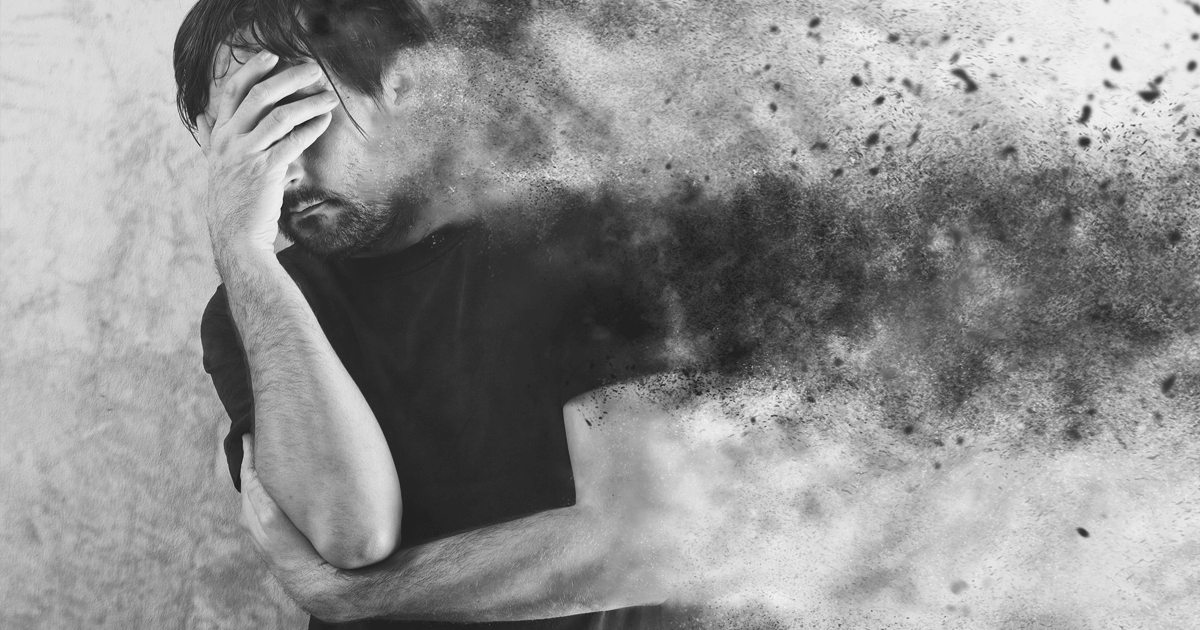Depression- How is it caused and how can it be treated?

Depression is not just a feeling of unhappiness or being a bit fed up for a few days – which is common and totally normal.
Those who are suffering from depression can suffer from an immense feeling of sadness that can last for weeks and maybe even months. Everyone is different and the condition can manifest itself in different ways but is often described as a total disconnect from all feelings of happiness.
Here is an excerpt from a video interview of Dr Lokesh Kumar, Psychiatrist, Department of Psychiatry, Omni Hospitals, Kukatpally, Hyderabad, on Depression, its causes and symptoms.
Q. What is depression?
A. Depression is a serious medical illness; it’s not something that you have made up in your head. It’s more than just feeling “down in the dumps” or “blue” for a few days. It’s feeling “down” and “low” and “hopeless” for weeks at a time.
Depression also makes you lose your self-confidence, self-respect and interest in things that would once excite you. Suicidal thoughts and an idea of a worthless future are also very commonly seen symptoms of depression.
Q. What are the symptoms of depression?
A. The most common symptoms of depression are:
– Irritability, agitation or restlessness
– Lower sex drive
– Inability to focus, concentrate or make decisions
– Insomnia or sleeping too much
– Change in appetite and/or weight, eating too much or too little
– Tiredness and lack of energy
– Unexplainable crying spells
– Unexplainable physical symptoms such as headaches or body aches
– Feeling hopeless or worthless
– Withdrawal from social situations and normal activities
– Thoughts of death or suicide
Q. What are the causes of depression?
A. The causes of depression are not fully understood, but scientists think that an imbalance in the brain’s signalling chemicals may be responsible for the condition in many patients.
Moreover, a variety of distressing life situations are also associated, including early childhood trauma, a job loss, the death of a loved one, financial troubles or a divorce.
Most likely, depression is caused by a combination of genetic, biological, environmental, and psychological factors, according to the NIMH.
Q. Does depression occur to only weak-minded people?
A. Depression is one of the most common forms of mental illness. For too long, depression has been viewed as trivial or as a sign of weakness but that couldn’t be further from the truth. Depression is a real health condition and one that can happen to anyone, regardless of gender, age, background or occupation.
Most likely, depression is caused by a combination of genetic, biological, environmental, and psychological factors, according to the NIMH.
Q. How is depression different from grief?
A. Sadness is a standard human emotion. It looks different for different people and in different situations, but we all experience it regularly, maybe some of us more vividly than others. Being sad allows us to deal with painful experiences and loss. It can be cathartic and relieve tension.
Grief is a normal reaction to a tremendous loss. If you lost something or someone important, it’s expected for you to be stricken with grief for a long time—much longer than the two-week criterion for depression.
The key is whether or not that sadness is paired with other factors of depression—loss of energy, trouble concentrating or making decisions, difficulty sleeping, disruption in eating patterns, feelings of hopelessness, worthlessness or thoughts of self-harm. Depression is a pervasive lack of pleasure in things you’re doing.
Q. What are the stages of depression?
A. The initial onset of clinical depression is not easy to identify. Its early symptoms are subtle, gradual and tend to develop in succession, like dominoes tumbling one after the other.
The stages by which you can tell the illness is escalating from mild and moderate depression to severe depression are:
– Low motivation and a lack of energy
– Loss of interest in hobbies and other favourite pastimes
– Loss of emotional edge
– Vague and undiagnosable aches, pains and physical ailments
– Changes in sleep patterns or eating habits
– Small problems suddenly seem insurmountable
– Performing in school or at work becomes increasingly difficult
– The world will begin to seem like a dark, scary and dangerous place
Q. How different is depression between males and females?
A. Females are more prone to depression when compared to males, due to hormonal changes and other stress factors.
Q. Do all people who commit suicide do it because they are depressed?
A. It is not true that all people who commit suicide do it because they are depressed. There might be a number of factors for a person to take such a step and depression can be one among those few factors. Although people who are suffering from severe depression are capable of committing suicide.
Q. What are the different types of depression?
A. The initial onset of clinical depression is not easy to identify. Its early symptoms are subtle, gradual and tend to develop in succession, like dominoes tumbling one after the other.
The stages by which you can tell the illness is escalating from mild and moderate depression to severe depression are:
– Low motivation and a lack of energy
– Loss of interest in hobbies and other favourite pastimes
– Loss of emotional edge
– Vague and undiagnosable aches, pains and physical ailments
– Changes in sleep patterns or eating habits
– Small problems suddenly seem insurmountable
– Performing in school or at work becomes increasingly difficult
– The world will begin to seem like a dark, scary and dangerous place
Q. Can work stress turn into depression?
A. For any psychiatric disorder, there are three ways by which it progresses and hence the symptoms are also seen in these three areas. They are:
– Biological symptoms
– Psychological symptoms
– Social symptoms
When the biological and social factors are affected, work stress can turn into depression.
Q. What is a major depression?
A. Major depression is a mood disorder. It occurs when feelings of sadness, loss, anger, or frustration get in the way of your life over a long period of time. It also changes how your body works. It is also an alternate name to moderate depression.
Q. Can lack of sleep cause depression?
A. Lack of sleep is one of the causes of depression but not the only cause.
Depression is caused by a combination of genetic, biological, environmental, and psychological factors, according to the NIMH.
Q. What is bipolar disorder?
A. Bipolar disorder, formerly known as manic-depressive illness, is a serious medical condition. Someone with bipolar disorder has extreme episodes of mania, or being very “up” or energetic and active, and episodes of depression, or being very “down” and sad.
Q. What is postpartum depression?
A. Postpartum depression is a form of depression that a mother can experience within the first few weeks, months or even up to a year after having a baby. If left untreated, this depression can last for months or even years after the baby is born. The longer an episode of depression goes untreated, the longer the recovery and the higher the risk of suicide.
It’s true that it’s normal for many new mothers to feel a bit down after childbirth, but if these “baby blues” last more than two weeks and affect your ability to take care of yourself and your baby, you may have postpartum depression.
Q. What is PMDD?
A. Premenstrual Dysphoric Disorder commonly known as PMDD, shares similarities with Premenstrual Syndrome (PMS). PMDD can cause severe irritability, depression, and anxiety the week or two before your period starts. This is due to the sudden drop in hormones after ovulation occurs.
Q. Is help needed during a depression?
A. Yes, help will definitely do good for a person suffering from depression.
A common treatment for depression is Cognitive Behavioural Therapy (CBT). This is a talking therapy that teaches you to identify negative thoughts and feelings and offers coping strategies to help deal with them.
For more severe forms of depression, antidepressants are prescribed which boost the activity of particular brain chemicals (such as noradrenaline and serotonin) that are thought to play a role in regulating mood. They can help to lift the mood, but they can also come with side effects.
Other alternative therapies include music and art therapy, mindfulness, meditation, exercise programmes and work rehabilitation programmes.
Q. What is a seasonal affective disorder?
A. Seasonal affective disorder (SAD), is a kind of depression that tends to occur (and recur) as the hours of daylight grow shorter during the fall and winter months, but it may occur during the summer for some individuals.
Light therapy, talk therapy, medication and changes in biorhythms (chronotherapy) are often used treatments for seasonal affective disorder.
Lifestyle changes that can help decrease the symptoms of seasonal affective disorder include increasing time spent outdoors, more physical exercise, and maintaining healthy eating habits.
Q. What is the medication used to treat depression?
A. Antidepressants are prescribed which boost the activity of particular brain chemicals (such as noradrenaline and serotonin) that are thought to play a role in regulating mood. They can help to lift the mood, but they can also come with side effects.
SSRIs target the brain’s serotonin, a signalling chemical (neurotransmitter) that studies have found to be involved in depression. This class of medication includes fluoxetine (commonly known as Prozac), sertraline (Zoloft), paroxetine (Paxil), escitalopram (Lexapro) and citalopram (Celexa). Side effects, which are usually temporary, include changes in sexual desire, digestive problems, headaches, insomnia and nervousness.
Other classes of antidepressants include serotonin and norepinephrine reuptake inhibitors (SNRIs), Norepinephrine and dopamine reuptake inhibitors (NDRIs), Tricyclic antidepressants, and Monoamine oxidase inhibitors (MAOIs).
Medications take time — usually 2 to 4 weeks — to work, and often symptoms such as appetite, concentration problems and sleep improve before people may notice mood changes
Q. How can psychotherapy treat depression?
A. The most common form of psychotherapy used to treat depression is Cognitive Behavioural Therapy (CBT). This is a talking therapy that teaches you to identify negative thoughts and feelings and offers coping strategies to help deal with them.
Q. Is hospitalisation required during depression?
A. It depends on the severity of the depression. Most cases of depression are handled on an outpatient basis.
If the patient exhibits suicidal behaviour, then hospitalisation is necessary.
Q. How can we prevent depression?
A. A healthy lifestyle, socially, physically and mentally will help prevent depression to a large extent.

Psychiatraist
